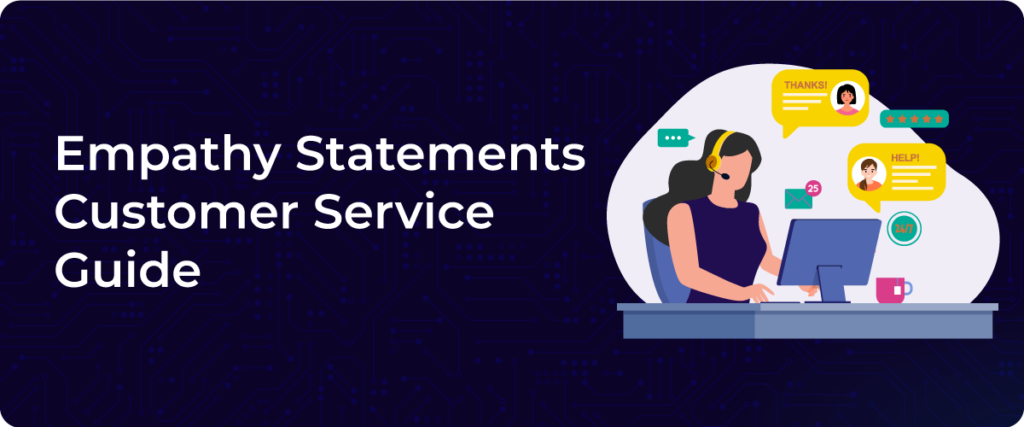While customer service is not the most prestigious or important job, it plays one of the key roles in any company. Customer service agents engage with consumers, which is essential for building long-term customer relationships, fostering a strong brand reputation, and staying competitive at the highest industry level. Thus customer service skills play a huge role in it.
No matter how good your product or service is, bad customer service from your support agent will lose you your clients. According to SalesForce’s research, 82% of Agents describe that customers expect a faster, better service tailored just for them.
Below are the contents of the blog:
Table of Contents
- What is Customer Service
- The Top 10 Key Skills Required for Customer Service
- Why is it Important
- Key Aspects of Customer Service
- How to Build and Nurture Skills for Customer Service
- Examples of Successful Customer Service
- Wrapping it up
What is Customer Service
At its core, Customer service refers to the support you provide to the buyers. This can be from the first time they visit or contact the business anytime before or after a purchase. It’s how companies solve problems, suggest customers, and ensure customers are satisfied throughout the journey. Below is the discussion on good skills to have for customer service.
The Top 10 Key Skills for Customer Service
Soft Skills
Soft skills are nontechnical skills or general attributes that can help you excel in any workplace. These are core skills and attributes which enhance an individual’s ability to get the job done.
1. Active Listening
Active listening is like being a detective for customer happiness. It means focusing on what the customer is saying, understanding their needs, and showing that you care, instead of jumping to conclusions, you ask questions and respond thoughtfully.
Example: The customer service agent listens attentively, asks clarifying questions, and paraphrases the customer’s concerns to ensure understanding. This shows the customer that their problem is being taken seriously and helps the agent find a solution more efficiently.
2. Empathy
Empathy can be understood as the ability to understand others’ perspectives. It is to put yourself in their shoes. It is generally easier said than done. Empathy allows customer success agents to understand their audience and provide solutions accordingly.
Example: A customer complains regarding late delivery. The agent empathizes with the customer shares a live tracking link and ensures the customer it will be delivered within 2 days.
3. Problem-Solving
Customer Service revolves around problems. If problems did not exist, customer service wouldn’t exist, either. This skill is fundamental in overcoming challenges, whether technical, operational, or interpersonal. Strong problem-solving skills enable agents to think critically, innovate, and make informed decisions, contributing to organizational growth and efficiency.
Example: A customer calls and complains about receiving a damaged product. The customer service representative apologizes and offers a replacement.
4. Time Management
“Time is what we need the most but what we use the worst”—William Penn.
Implementing time management allows you to prioritize tasks and manage workload efficiently, ensuring deadlines are met and productivity doesn’t stumble.
Example: A customer service agent receives too many calls. The agent breaks it down and makes the urgent calls first.
5. Patience
Patience is a virtue that takes time to master. It is useful when speaking to frustrated, rude, or unsatisfied customers. Any argument with customers will damage your brand image. Practicing patience and compassion will ensure a better customer experience.
Example: A frustrated customer complains about the product, and the agent listens to the complaint, does not get defensive, and reassures the customer that they will solve the problem.
Hard Skills
6. Product Knowledge
Knowing your product inside and out helps you answer questions, resolve issues, and make recommendations confidently. This involves knowing the features, specifications, and benefits of your offerings.
Example: A representative for a smartphone company should explain features like battery life or troubleshooting tips to assist a confused customer. This ensures accurate and efficient solutions.
7. Technical Expertise
Understanding technical systems or processes allows you to assist customers with troubleshooting and complex issues effectively.
Example: A tech support agent helps a customer reset their Wi-Fi router, explaining step-by-step instructions to resolve connectivity issues.
8. Artificial Intelligence
Knowing how to use AI tools enhances efficiency and personalizes the customer experience by automating repetitive tasks. Using Conversational tools like ConvoZen.AI also enhances customer service. According to SalesForce, Among service professionals at organizations investing in AI, 93% say the technology saves them time on the job.
Example: An agent uses a CRM powered by AI to quickly pull up a customer’s history and recommend solutions based on previous interactions.
9. Professional Language
Using respectful and clear language ensures effective communication and leaves a positive impression on the customer. Industry-specific jargon is important in B2B too.
Example: Instead of saying, “I don’t know,” the representative says, “Let me look into that for you, and I’ll get back with a solution.”
10. Omnichannel Awareness
Managing interactions across various platforms ensures consistency and a smooth customer experience.
Example: A representative addresses a complaint on Instagram, and then follows up with an email containing a detailed solution and next steps.
The above are the key skills required for customer service skills success. Inculcating these skills for customer service would bring great agents. These can be great skills for a customer service resume which would give a deeper understanding of the agents.
What makes it important?
Customer service is the heart of any business—it makes customers return for more. Think about it: a great product is awesome, but people won’t stick around if the experience is lousy. Strong skills for customer service, like active listening and problem-solving, make customers feel heard and valued.
It’s all about building trust and loyalty, which leads to glowing reviews and word-of-mouth referrals. Plus, happy customers are more likely to forgive small mistakes. Conversely, bad service can tank your reputation faster than you think. In short, great customer service isn’t just a nice-to-have; it’s a must for growing and keeping a thriving customer base.
Key Aspects of Customer Service
Key aspects of customer service make a good experience truly great. First, communication is king—being clear, friendly, and responsive goes a long way.
Then there’s empathy; customers want to feel understood, not just heard. Problem-solving is a biggie too—no one likes being passed around or left without answers.
Remember timeliness; quick resolutions can turn a bad day into a good one for your customers. Finally, consistency is key—people should feel the same level of care every time they interact with your brand. Nail these, and you’ll be on your way to happy, loyal customers.
How to Build and Nurture Skills for Customer Service for Success
Building and nurturing skills for customer service isn’t rocket science, but it requires practice and effort. Start with active listening—pay attention to what customers are saying (and even what they’re not). Work on communication skills, both verbal and non-verbal; clarity and friendliness are your best friends here.
Don’t shy away from feedback—learn from what customers and colleagues say about your approach. Sharpen your problem-solving skills by thinking creatively and staying calm under pressure. Practice empathy daily—it’s all about understanding and connecting with the customer’s perspective. Lastly, keep learning; attend workshops or watch tutorials to stay sharp. Customer service is a skill you can keep leveling up!
Examples of Successful Customer Service
Successful customer service is all about going the extra mile. Take Amazon, for example—their hassle-free return policy and lightning-fast resolutions make customers feel valued and stress-free. Or Starbucks, where baristas remember your name and favorite drink, adding a personal touch to every visit. It’s these little things that turn customers into loyal fans!
Wrapping it up
Customer service might not always steal the spotlight, but it’s the backbone of any successful business. It’s more than just solving issues—it’s about creating memorable experiences, building trust, and fostering loyalty. Whether it’s a friendly conversation, quick problem resolution, or personalized care, great customer service keeps your brand thriving.
Invest in training, encourage empathy, and leverage the right tools to help your team excel. Remember, happy customers are the best advocates your business could ever ask for. So, keep the focus on them, and understand the key skills for customer service and success will follow.
To learn more about the right tools click here
FAQs
- What are the 7Cs of Customer Service?
7 Cs of Customer Service
The 7 Cs focus on delivering exceptional customer experiences: Clarity, Consistency, Credibility, Competence, Courtesy, Commitment, and Communication. These elements ensure clear messaging, reliable service, and a polite, professional approach that fosters trust and loyalty. By mastering these, businesses build stronger relationships with customers.
- What are the five qualities of customer service?
Five Qualities of Customer Service
The five qualities essential for excellent customer service are Empathy, Patience, Problem-Solving Skills, Attentiveness, and Strong Communication Skills. These traits help representatives address concerns effectively, ensuring customers feel valued and understood, contributing to overall satisfaction.
- What are the six pillars of customer service?
Six Pillars of Customer Service
The six pillars include Personalization, Integrity, Expectations, Time and Effort, Resolution, and Empathy. These principles guide businesses to create tailored experiences, resolve issues swiftly, and demonstrate genuine care, driving customer trust and long-term loyalty.
- Name the 2 Important tools in customer service skills for success.
2 Important Tools for customer service skills for success
1. Customer Relationship Management (CRM) tools like Salesforce or HubSpot help track customer interactions and manage data for personalized service.
2. Conversational AI tools like ConvoZen.AI enhance customer service with intelligent chatbots and predictive analytics. ConvoZen.AI’s ability to automate responses and provide real-time solutions ensures seamless support, elevating the overall customer experience.
Unleash Your Contact Center’s Potential Today! 👉 Get Started with ConvoZen.AI and Elevate Customer Experience.


